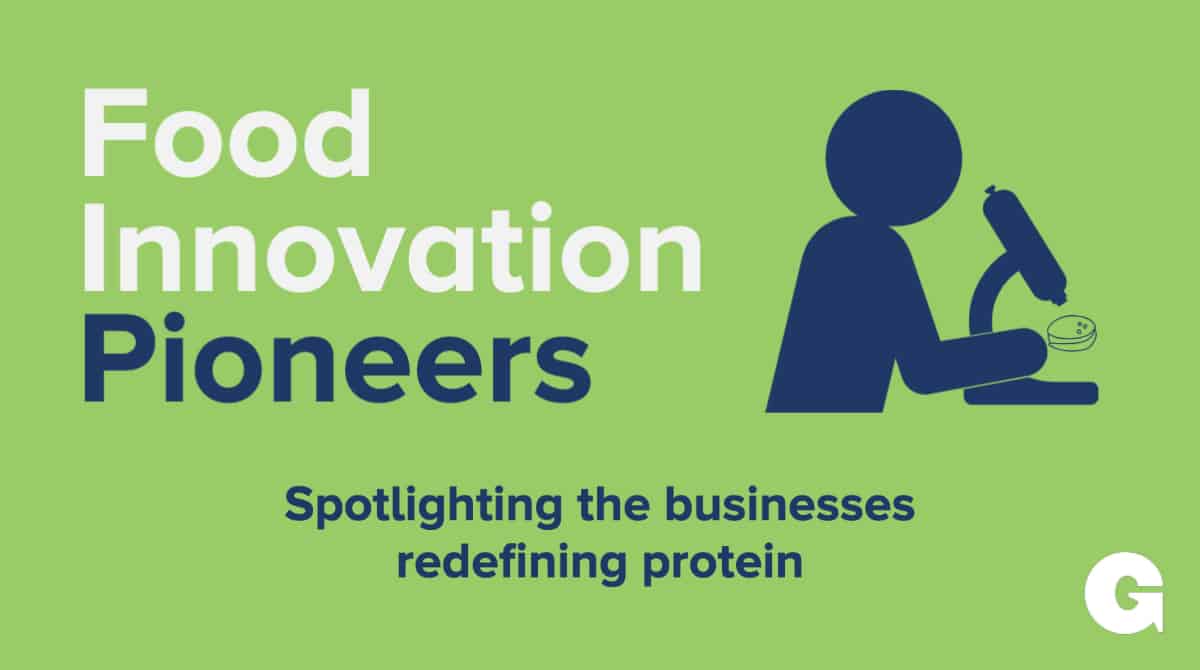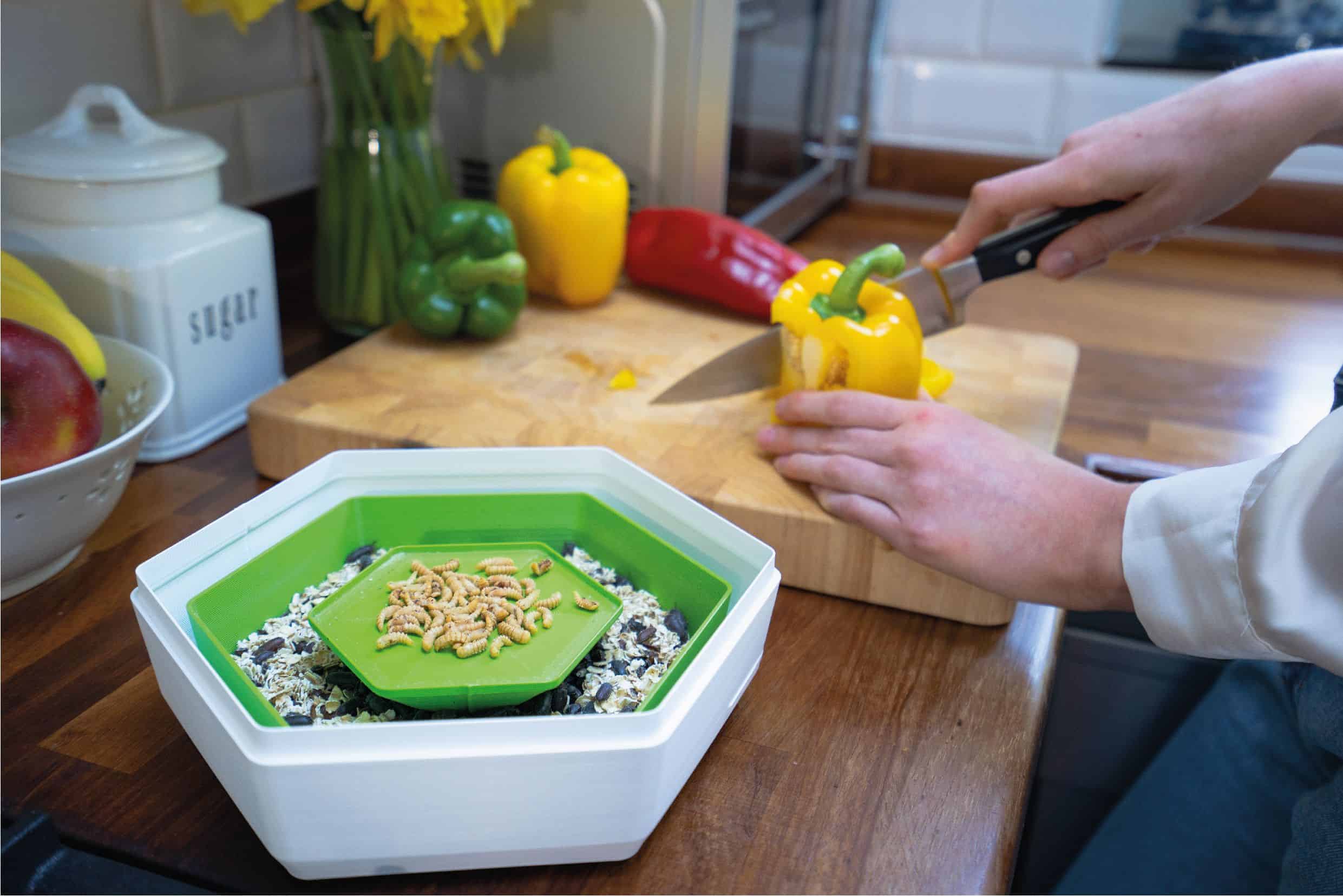Five alternative protein pioneers to watch this year

Approximately 15% of global greenhouse gas emissions originate from livestock production (WEF) and, with the demand for animal products in developing countries expected to more than double by 2030 (FAO), the full impact is yet to be seen. Not only is it clear that this is fundamentally unsustainable, but non-regenerative livestock production systems are also using up valuable water sources, degrading our lands and cutting down our forests. This month in our Food Innovation Pioneers Series, we look at the alternatives.
Whether it be in a restaurant, a supermarket or simply in the headlines, we would have all encountered alternative proteins in one way or another. Defined as foods that provide substantial protein while requiring less natural input when compared to meat, alternative proteins can act as a viable part-time or full-time sustainable meat substitute.
Fast-paced innovation and research within the alternative proteins market – which saw half its entire investment history occur in 2020 alone (GFI) – has also led to the development of new technologies, production methods and, as a result, new food products. These include everything from plant-based proteins, mycoprotein and microalgae to edible insects and lab-grown meat and seafood.
Here are our top five picks of pioneering businesses that are redefining protein:
1) BeoBia – UK
Insects are consumed as food all over the world, but their taboo in Europe and North America is still yet to be broken. Originally starting as a university project, BeoBia is working to transform the market and make insects a norm in the everyday kitchen. Meaning ‘food for life’ in Gaelic, BeoBia believes insects are not only healthy and delicious, but use far less resources than traditional sources of protein.
BeoBia’s recycled tray product, the Re_, allows you to grow your own insects at home and create a continuous supply of protein. Re_ can produce between 100-300 grams of mealworms per harvest, which are over 54% protein and can be used as an ingredient in foods such as pancakes or smoothies. On top of this, the insects are fed using food waste and their faeces can be used as a plant fertiliser!

Photo credit: BeoBia
2) NapiFeryn BioTech – Poland
Plant-based protein is a growing market only continuing to soar. NapiFeryn BioTech has developed a patented technology to extract food grade proteins from oilseeds. With a primary focus on rapeseed, the company develops proteins with functional properties that can be used as food ingredients. With more people turning to vegetarianism and veganism, NapiFeryn BioTech predicts rapeseed protein to be the next big thing in the plant-based world.
Part of EIT Food’s innovative network of RisingFoodStars, the company has set a 10-year objective to see at least 5% of global rapeseed production processed with NapiFeryn BioTech technology after its first commercial facility is up and running.
3) Future Meat Technologies – Israel
Advancing the industry of ‘cellular agriculture’, Future Meat Technologies is creating a cost-effective and sustainable alternative to animal husbandry. With a belief that future generations should “eat the same food we enjoyed growing up” but in a sustainable and ethical way, Future Meat Technologies uses a GMO-free process to grow animal cells in patented bioreactors that can replace barns and processing factories. The process enables 40 -fold higher production yield and reduces the volume of feed and waste products.
Future Meat Technologies’ serum-free media uses high density growth technology which creates scalable production methods. The company hopes to reduce cost and replace traditional animal protein in a way that is accessible and affordable for all.
4) Mosa Meat – The Netherlands
Since proving its concept at a press conference in 2013, Mosa Meat has also been taking the cultured meat industry by storm. Harnessing the same natural processes responsible for muscle growth in cows, Mosa Meat nurtures cells in the lab to grow slaughter-free and emissions-free beef. One ‘sesame-sized sample of cells’ can make up to 80,000 burgers!
Mosa Meat is now working in Maastricht to further develop its products, reduce costs and help make cultured meat the norm. And with the recent news of Singapore approving lab-grown chicken for public sale, Mosa Meat’s burgers may not be too far away from reaching our plates.
A new study finds cultivated beef could have a 92% climate impact reduction when compared to conventional beef.
What does that mean for us at Mosa Meat? We are working to make the findings specific to our operations.
Read our blog for more info: https://t.co/VUtruVlqxe pic.twitter.com/dREd4fBfF3
— Mosa Meat (@mosa_meat) April 1, 2021
5) MiAlgae – UK
Alternative proteins do not stop at meat replacements for humans. As much as 90% of the world’s fish stocks are overexploited or depleted, made worse by farms using fish-based feed. MiAlgae looks to algae as the solution, a sustainable Omega-3-rich alternative. The company’s zero waste solution recycles co-products from food and drink production to produce microalgae, returning clean water in the process. What’s more, farmed fish such as salmon are thought to contain as much as 50% less Omega-3 compared to five years ago, and MiAlgae’s algal feed supplements this to boost nutritional profiles.
As a funding recipient from the UK Government Seafood Innovation Fund, MiAlgae is currently trialling algae feed for salmon. Watch this space!
Stay tuned over the coming months as we continue to spotlight and interview more businesses as part of our Food Innovation Pioneers series. If you’re a pioneer tackling sustainability in the food industry, please get in touch with the Greenhouse team at info@greenhousepr.co.uk.


